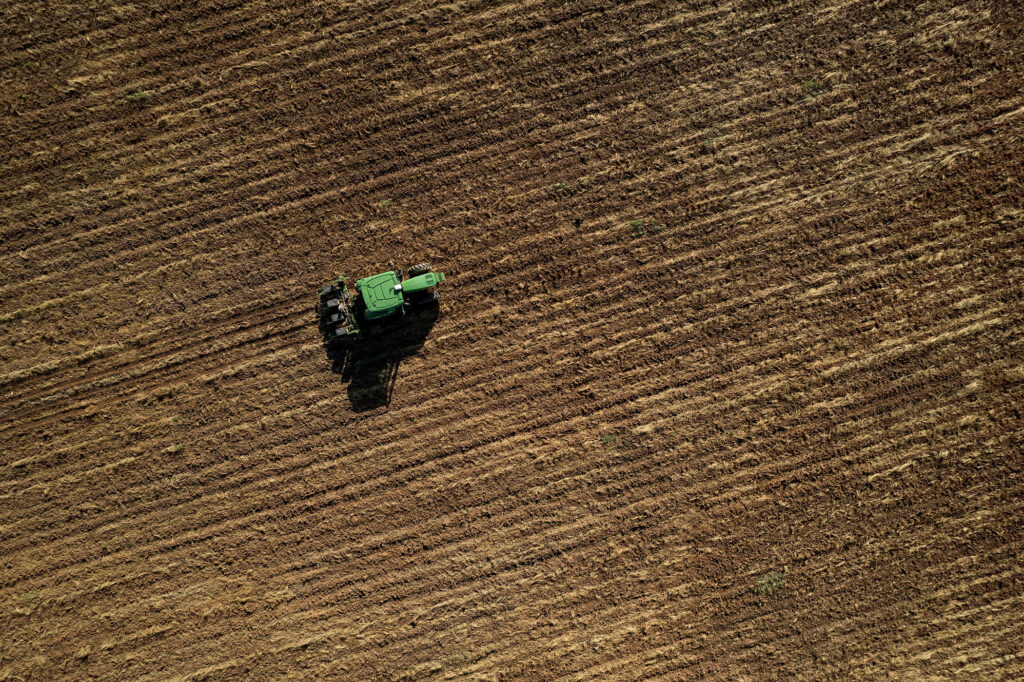 Farming communities face many of the same barriers as rural communities, but farmers often face more stigma when seeking help with their mental health. (Photo by Andrew Davis Tucker/UGA)
Farming communities face many of the same barriers as rural communities, but farmers often face more stigma when seeking help with their mental health. (Photo by Andrew Davis Tucker/UGA)
A new study by the University of Georgia reveals that one in five farmers in the United States report binge drinking when experiencing severe depression.
The paper highlights the relationship between farmers using alcohol to cope with stress.
Farming is a uniquely demanding calling. Farmers work long hours doing heavy, repetitive and often dangerous tasks. In fact, agriculture is one of the 10 most dangerous jobs in the US, according to the Occupational Safety and Health Administration.
Then there is the financial burden of running the farm. Farming is famous for high risk, living profit and dying good harvest.
«Alcohol is the most acceptable way to deal with stress versus talking to someone about that stress, or being able to talk about that stress with friends,» Christina said. Proctor, the study’s lead author. clinical associate professor in the UGA College of Public Health.
Unique health care barriers exist for the farming community
In addition to the barriers to care that many rural residents face – lack of professionals, long waiting times, long trips to health care facilities – researchers have identified other barriers related to agriculture, to including stigma and lack of trust in health care. donors.
«There is a stigma associated with reaching out for mental health care that exists in rural communities, but the farming community can be very integrated, and there can be impacts on their day-to-day operations and day,» said Proctor.
In her previous work when she interviewed farmers about their experiences of dealing with stress, many of them were afraid that seeking mental health care would be described by their fellow farmers. or companies that pay them to produce what they cannot do.
«It’s a lot easier for them to go in and just drink alcohol,» he said. «And it’s also more acceptable in rural areas to do that than to go to a mental health facility.»
96% of farmers drink. More than 1 in 3 have too many drinks a week.
Proctor and his co-author, doctoral student Noah Hopkins, surveyed 1,045 farmers across the country who produce a variety of high-demand crops including beef, corn, wheat, fruits and vegetables.
The survey looked at their alcohol use and their perception of their ability to deal with stress, measured as resilience.
About 96 percent of farmers report drinking alcohol, and more than a third say they drink two to three drinks a week.
That amount puts farmers on par with most Americans’ drinking habits — for example, 21.7% of US adults reported drinking five or more alcoholic drinks in the past month, according to the latest National Institutes of Health of Alcohol Abuse and Alcoholism, compared to 22.5% of farmers.
There are painful, traumatic consequences associated with not being able to ask for that care, using alcohol to cope and feeling hopeless.» – Christina Proctor, College of Public Health
But these numbers worry Proctor because of how they fit into the bigger picture of mental health stigma.
«Knowing the stigma that exists among rural farming communities about seeking care and looking at death in suicide numbers is really a public health issue because there are dire consequences associated with can’t ask for that attention, use alcohol to cope and then I feel hopeless,» he said.
But farmers who reported that they could rely on community resources and peers, which are key factors in resilience, were less likely to drink excessively.
The authors say that relying on that desire to help a fellow farmer or fellow farmer is key to helping farmers overcome stigma and receive mental health care resources when they are available.
The future of farmers’ well-being – and our global food supply – depends on acting now.
«If the internet doesn’t exist, we have to train our bankers. We have to train, you know, farm office agents; we have to train feed store managers. Everyone in the in rural areas you have to be willing to have open and honest conversations about mental health,» Proctor said. «It starts with a foundation, but it’s huge.»
#farmers #United #States #turn #drinking #pressure

